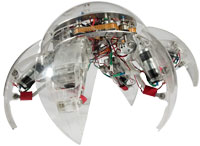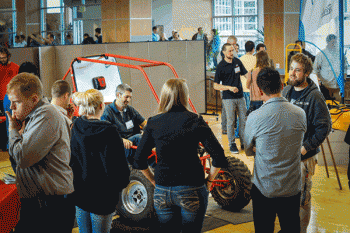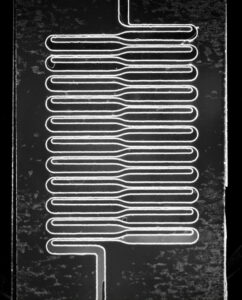 Engineers are involved in making all the wonders of the future a reality. Imagine creating new technology – like a flying car, an undersea house, or building virtual reality amusement parks. What if you could discover and patent a new device that would help surgeons operate on a patient in a distant location or construct a machine that filters CO2 out of the atmosphere? Don’t just dream it – make it a reality by becoming a Mechanical Engineer! By becoming a mechanical engineer, you can help solve problems that are important to society. You could be controlling and preventing pollution, developing new medicines, creating advanced technologies, even exploring new worlds! And most importantly, you’ll have the power to make a difference!
Engineers are involved in making all the wonders of the future a reality. Imagine creating new technology – like a flying car, an undersea house, or building virtual reality amusement parks. What if you could discover and patent a new device that would help surgeons operate on a patient in a distant location or construct a machine that filters CO2 out of the atmosphere? Don’t just dream it – make it a reality by becoming a Mechanical Engineer! By becoming a mechanical engineer, you can help solve problems that are important to society. You could be controlling and preventing pollution, developing new medicines, creating advanced technologies, even exploring new worlds! And most importantly, you’ll have the power to make a difference!
 The ME Undergraduate curriculum involves strong training in basic engineering science and mathematics with applied experiences and real functions. We combine a comprehensive engineering science foundation with a strong design/construction/testing approach to engineering. At least one significant, hands-on design project is scheduled every year. Design projects include a Freshman robotics design competition, a Sophomore thermodynamics design competition, and a Junior mechatronics competition in which student teams design, build, and compete with projects that are of their own design. Mechanical Engineering student’s education is capped by a senior design project. These senior projects include everything from innovative new products for use by harried parents in feeding their babies at night and research on new neo-natal lung ventilators for pre-mature infants, to improved robotic arms and involvement nationwide student design competitions for walking robots. Formula 1 type race cars, mini-Baja race cars, moon buggies and improved human powered vehicles are annual favorites.
The ME Undergraduate curriculum involves strong training in basic engineering science and mathematics with applied experiences and real functions. We combine a comprehensive engineering science foundation with a strong design/construction/testing approach to engineering. At least one significant, hands-on design project is scheduled every year. Design projects include a Freshman robotics design competition, a Sophomore thermodynamics design competition, and a Junior mechatronics competition in which student teams design, build, and compete with projects that are of their own design. Mechanical Engineering student’s education is capped by a senior design project. These senior projects include everything from innovative new products for use by harried parents in feeding their babies at night and research on new neo-natal lung ventilators for pre-mature infants, to improved robotic arms and involvement nationwide student design competitions for walking robots. Formula 1 type race cars, mini-Baja race cars, moon buggies and improved human powered vehicles are annual favorites.
The heart of what makes the University of Utah a special place to get an education is its research and research within the Department of Mechanical Engineering is world renown. You will find our alumni distinguished by their ability to generate engineering solutions in complex systems. Broadly, our students have  the opportunity to combine research and education efforts to develop and utilize Information Technology (IT) and curriculum synthesis for the purposes of elevating their level of sophistication. More specifically, computer based technologies (and the associated skills required to effectively use these technologies) will be integrated throughout the curriculum. The directed intent of this effort will be to bridge the long-standing interfaces that exist between the engineering science, design, control, and product realization components of Mechanical Engineering. The expected outcome will be mechanical engineers quantifiably more adept at developing, synthesizing, and implementing engineering solution strategies in complex systems. These skills broadly reflect the most significant future role of mechanical engineers.
the opportunity to combine research and education efforts to develop and utilize Information Technology (IT) and curriculum synthesis for the purposes of elevating their level of sophistication. More specifically, computer based technologies (and the associated skills required to effectively use these technologies) will be integrated throughout the curriculum. The directed intent of this effort will be to bridge the long-standing interfaces that exist between the engineering science, design, control, and product realization components of Mechanical Engineering. The expected outcome will be mechanical engineers quantifiably more adept at developing, synthesizing, and implementing engineering solution strategies in complex systems. These skills broadly reflect the most significant future role of mechanical engineers.